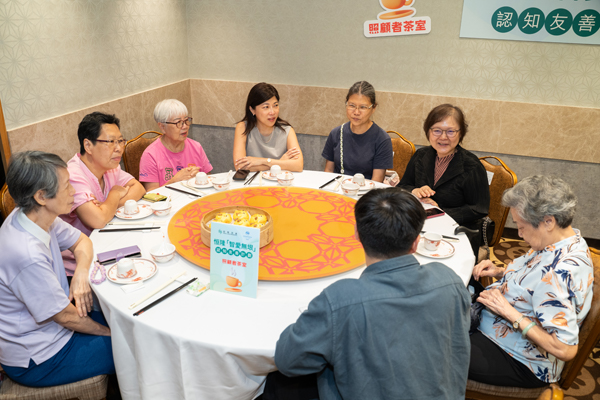Community Respite Services "Relief Corner" Partners With Local Shops
Carers Get Out of 5-minute Life Circle
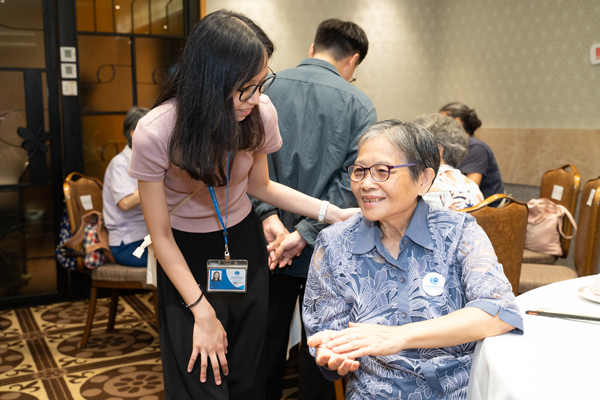
Ying-lai, a 69-year-old carer, has had her life changed since her husband was diagnosed with Alzheimer's disease ten years ago. "He was worried that I would leave him, so he wouldn’t let me go out," Ying-lai said. In the past, she could go shopping and look after her grandchildren, but now she only has a five-minute living circle. "I always cry at night," she admitted.
Since May last year, HKCS has launched the 'Relief Corner (角落休息暫)' in collaboration with local shops and restaurants, experimenting with a new partnership model of community respite services for the elderly with cognitive impairment. At the Relief Corner, volunteers enjoy tea time, play games and provide cognitive training for the elderly while allowing the carers to enjoy their me-time.
On the day Ying-lai took her husband to the Relief Corner, a local restaurant near home, she patted him on the shoulder and said, "Enjoy your meal. I'm going to go shopping for a while." As Ying-lai left the restaurant, she felt relief, as light and free as a cloud, untouchable and serene.
The carer loses herself while caring for her husband with dementia
Ying-lai walked into a Diaso Japan store and bought floral tape and cute bunny socks. She excitedly showed her purchases to the camera, like a child. We all laughed, and she remarked that she felt like she was on a mini vacation. After a bit of window shopping in fashion stores, she mentioned that her husband would feel insecure if she bought new clothes. She said, "He would also say that it's not appropriate for a wife to dress up if her husband is sick." She admitted that her husband has been losing his temper since being diagnosed with Alzheimer's disease. "But he wasn't like this before," Ying-lai added.
Ying-lai confessed that she hardly ever had the chance to shop alone in the last ten years. She mentioned that after her husband experienced a stroke, he remained quite independent and enjoyed taking walks in the park on his own. However, he now feels insecure, has become very clingy, and is hesitant to go out. Ying-lai felt angry and anxious when his husband called her to return while she was buying food at the nearby market. She said, "I started to think if I also have a degenerative disease, who can take care of him?" Indeed, what she is concerned about is not herself.
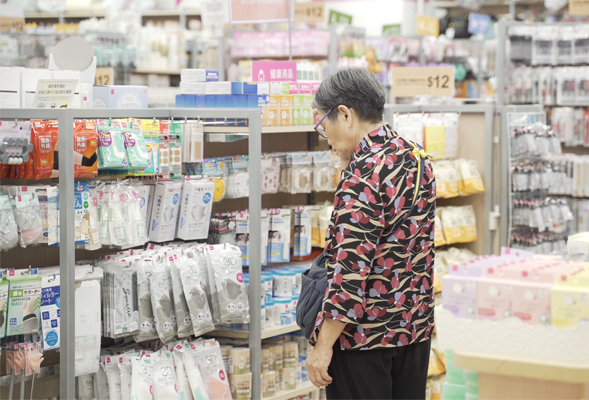
The Carer suffered from anxiety and acid reflux
A couple of years back, Ying-lai experienced acid reflux, which caused throat discomfort. Instead of rice, she had to eat oatmeal for six months. "I feel so anxious that sometimes my husband loses his temper and says hurtful things, and it makes me so angry that I can't sleep," she shared. When asked about her biggest concern, she responded, "I'm worried that my husband frequently imagines things and thinks I will abandon him." The interviewer inquired, "How do you console him then?" Ying-lai answered, "You can't console him with words but through actions."

Survey: 30% of carers rated themselves as very stressed
Last year, Hong Kong Christian Service (HKCS) conducted a 'Community Respite Services Survey' in which 499 elderly carers were interviewed by questionnaire. The survey found that one-third of the carers rated their caring pressure as 8 to 10 (out of 10), which is 'very high', and the main source of pressure was identified as 'providing care alone for long hours'.
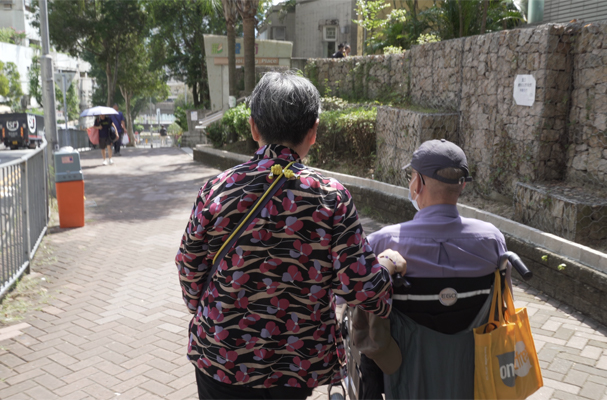
In fact, there are many hidden carers in the community. They think that taking care of their family members is their responsibility and will not take the initiative to seek help. Additionally, they may lack knowledge of community resources. In 2018, Ying-lai joined our carer support service at Bliss Oplus. She gained a deeper understanding of Alzheimer's disease and realized that her husband's change in personality was one of the symptoms. "I understand now that he didn't mean to make me angry. It's hard for him to change. I can only adjust myself," Ying-lai said. She continued, "In the past, I faced everything alone. If I was upset, I cried alone. Now that I have joined the elderly centre, no matter what happens, I can talk to social workers."
Carer services help the elderly doubleton family breakthrough
Ying-lai and her husband are participating in activities at Bliss Oplus together. Her husband initially hesitated to go to the elderly centre or chat with strangers. "Later, I would stay with him no matter where I went. He has become more relaxed and willing to talk to social workers," Ying-lai said. He now has more trust in his wife and strives to get out of his comfort zone. "Both of us have changed," Ying-lai said.
Flexible respite services help carers integrate into communities
However, the survey found that while they need respite services, nearly 90% of the respondents had never used an elderly respite service as it does not meet their needs regarding locations, times, and application procedures. "Relief Corner" can fill the service gap by increasing the flexibility of carers' lives. The service has been recruiting shops to collaborate, providing spaces for the elderly to enjoy tea time and have cognitive training with our volunteers.
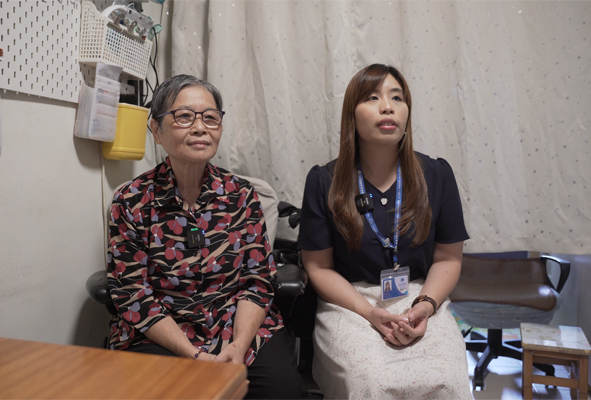
Ceci Chan, a social worker from Carer Plus, mentioned that every volunteer must complete a minimum of two training sessions. This encompasses learning how to interact with the elderly with dementia, providing first aid, and responding to emergencies. "Volunteers also have an additional role in encouraging carers to care for themselves," said Ceci.
